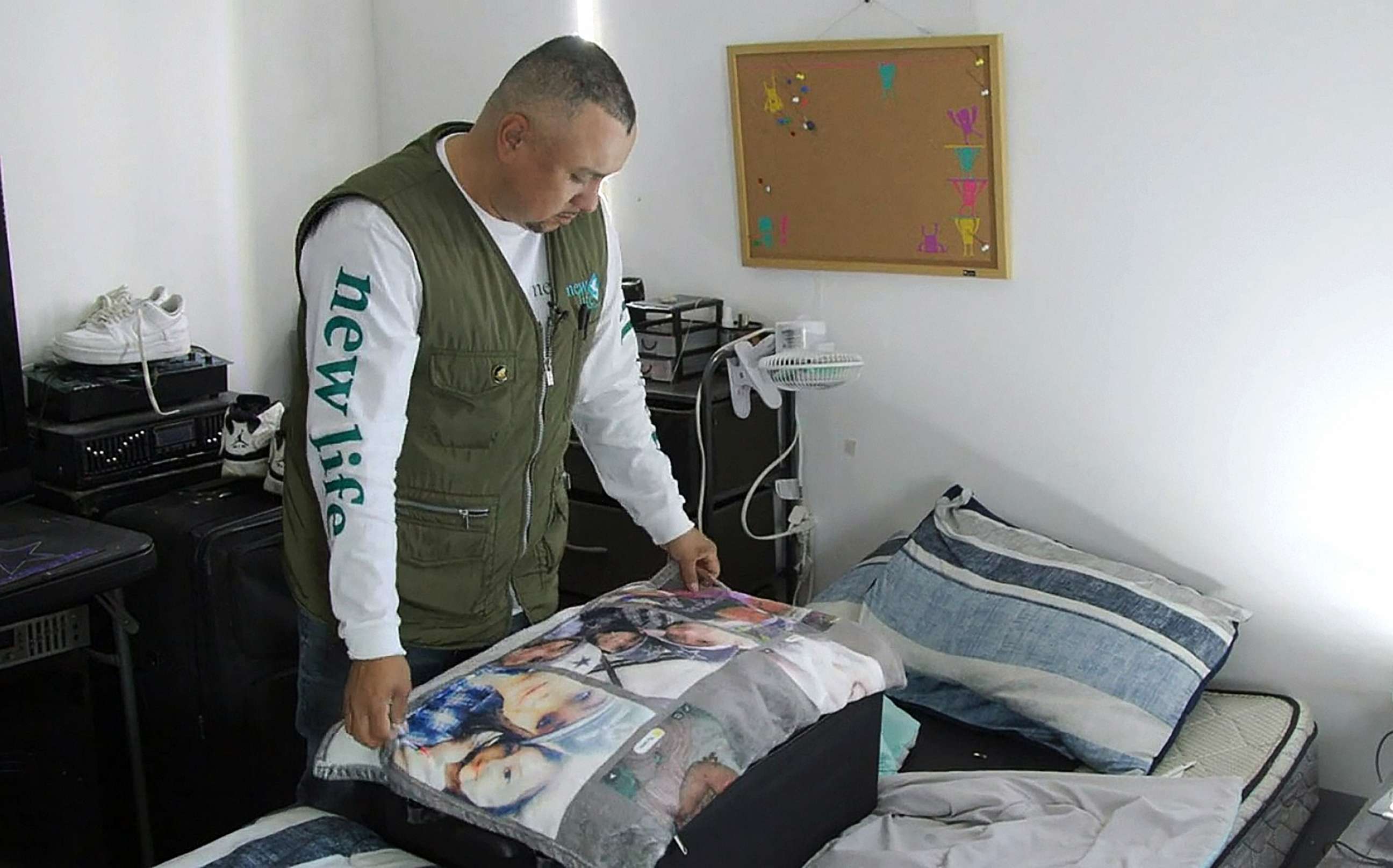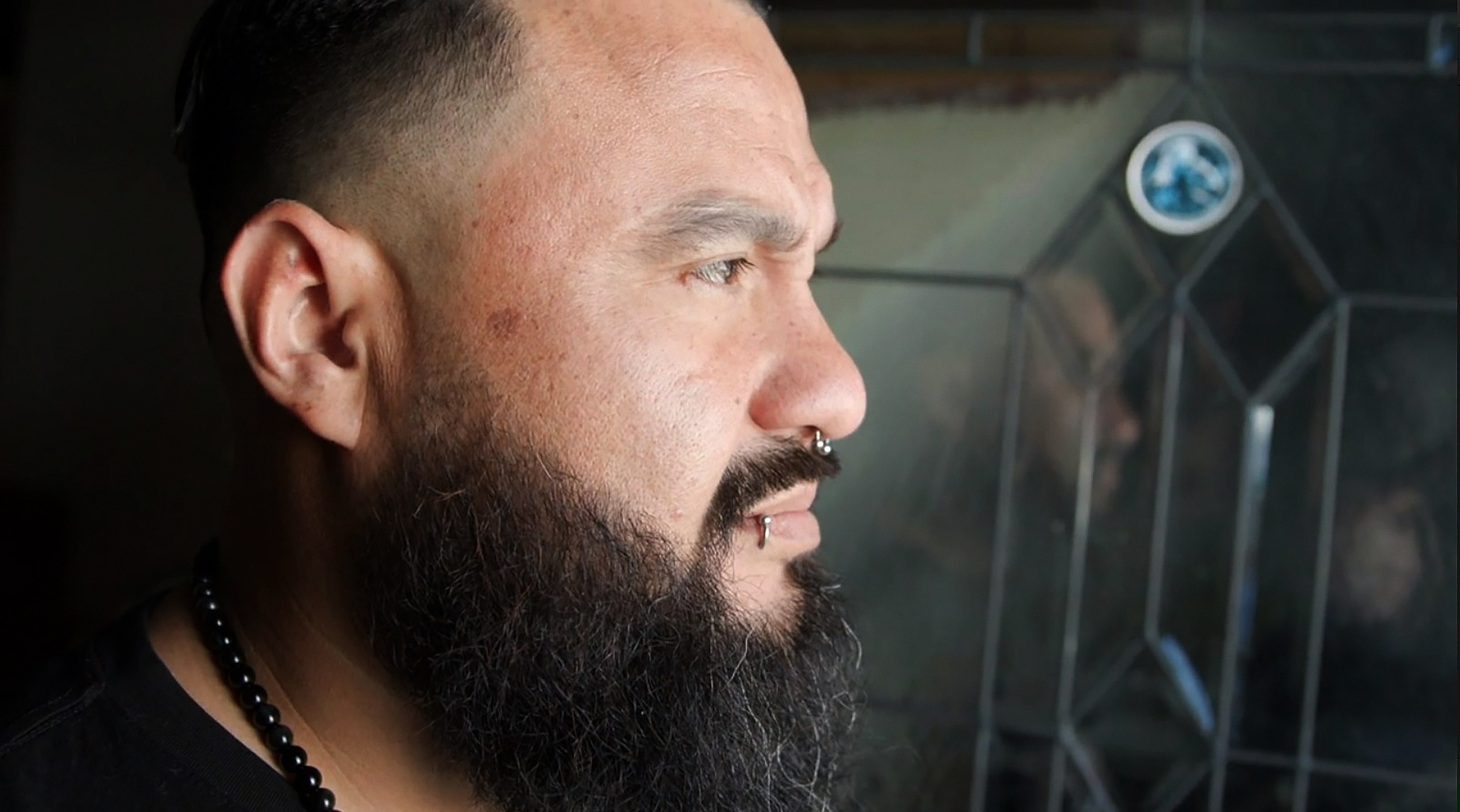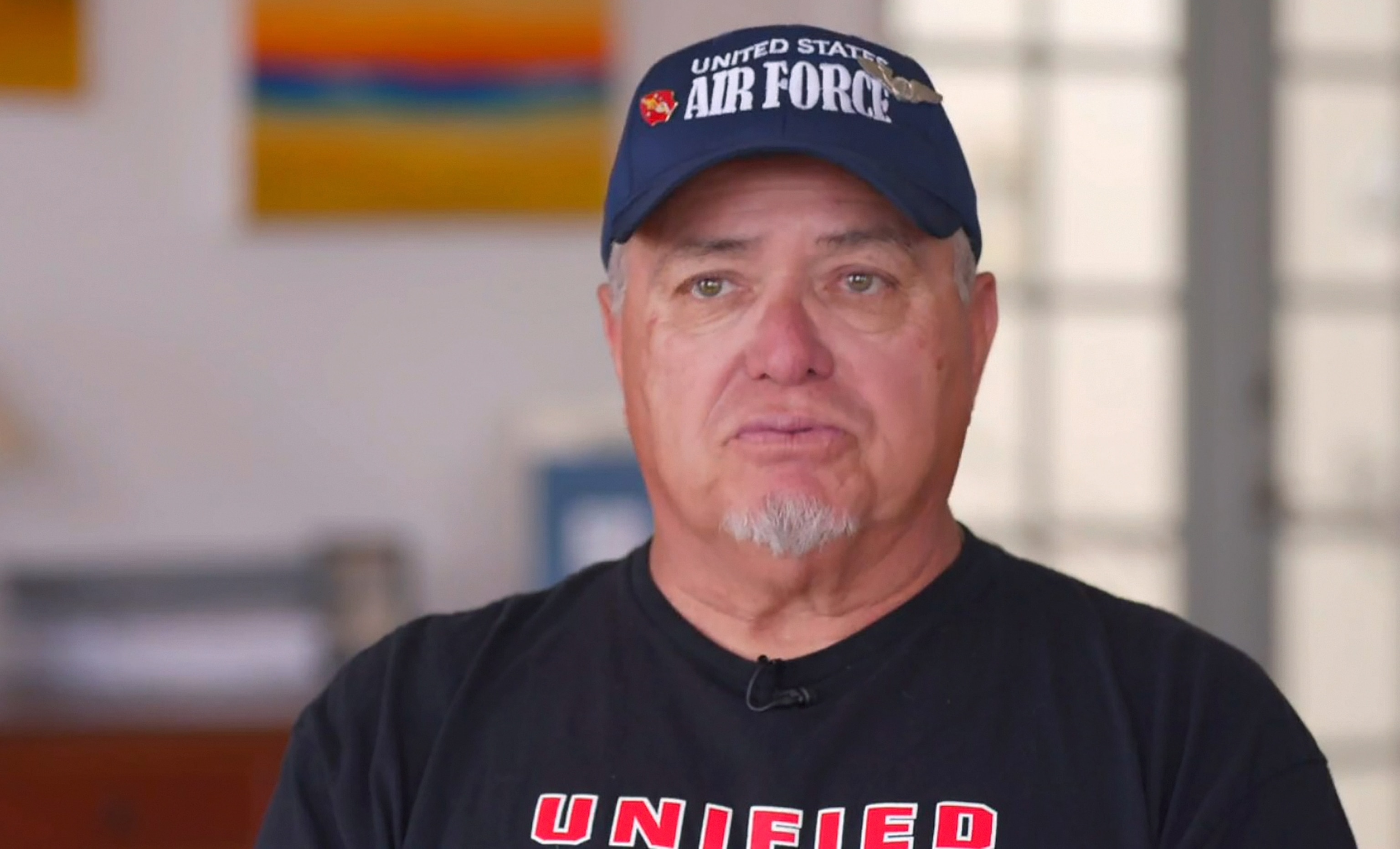Non-citizen veterans fight back against deportations over non-violent crimes
A congressman is pushing a bill to make improve the citizen application process.
U.S. Navy veteran Joe Rico said he enlisted after 9/11, spurred on by a sense of patriotism.
He was deployed to Iraq twice and earned numerous medals for his service.
But after he was honorably discharged, Rico says he struggled with his mental health and turned to drugs to cope.
He was convicted on drug charges and served almost five years in prison.
Rico says he thought he would be allowed to go back home, but instead he was deported to Mexico.
"I even asked the judge, 'Are you really going to deport a veteran?'" Rico, who had legal permanent resident status before enlisting, recalled. "And he's like, 'Well, thank you for your service, but says here you gotta go.'"

Rico is one of many immigrant veterans who have been fighting deportation over non-violent criminal offenses contending that they deserve a second chance after serving their country.
Non-U.S. citizens have been allowed to serve in the U.S. military. There are more than 32,000 non-U.S. citizens enlisted today, according to the U.S. Department of Defense.
For some, like Rico, enlisting held additional appeal- the promise of facilitating a U.S. citizenship application.
Rico, who immigrated to the U.S. from Mexico when he was 4, started the application process while on his naval ship but "nothing became of it. It got lost in the system."
After he was discharged, Rico said he suffered from post-traumatic stress disorder, but was never formally diagnosed. He said he turned to methamphetamines and started selling them to support his addicti/on. Rico was ultimately arrested and served a five-year prison sentence and was ordered to be deported.
Rico acknowledged he broke the law but said he felt that "getting deported is like getting punished twice."

Edwin Salgado, a Marine veteran of the Iraq war, was also deported to Mexico seven years ago following a drug conviction and told "Nightline" that he was diagnosed with PTSD.
The deportation has made it impossible for him to get treatment at a VA Hospital on the other side of the border.
"My goal is just to be happy. That's it," Salgado said. "I just want to have access to the U.S. I want to be able to go to the VA to get treatment."
Non-us citizens serving in the military have long been subject to deportation for violent crimes like murder, however, deportations for non-violent crimes have increased since 1997 after the Clinton administration passed the "Illegal Immigration Reform and Immigrant Responsibility Act" which widened the scope of crimes that could trigger deportation proceedings and took away discretion from judges.
But in 2022, the Biden administration launched an initiative that provides a pathway back to the U.S. and halts future deportations.
At least 75 deported veterans have returned under the Biden initiative, according to the Department of Homeland Security. Advocates like Robert Vivar, who runs the non-profit UNIFIED U.S. Deported Veterans Resource Center, says there is an urgent need to do more.

"It's not legislation. So it could change at any time," he said. "We need legislation to be passed."
Numerous bills have been proposed in Congress addressing the issue. The latest is the ‘Veteran Service Recognition Act’, re-introduced by U.S. Rep. Mark Takano (D-Calif) on Wednesday.
The legislation would streamline the process for a noncitizen veteran to gain citizenship and create a process where a veteran's service record would be considered before a deportation sentence.
Takano responded to criticism from Republican leaders who contend that the bill would allow noncitizen criminals to stay in the country by reiterating that his legislation only applies to non-violent offenses

"It is a travesty to me…that these folks who have been deported can get back into the country...in a coffin to be buried in National Cemetery," he said.
"If there is a day, one deserves a second chance. It is a veteran, somebody who has worn [the] uniform [for the] United States," the congressman added.
Rico got that second chance after he went to rehab for addiction. In May, his request to return to the U.S. was approved through the Biden initiative.
It allows him to be in the country for a year under parole, but he could be deported again for any violations.
His journey back was an emotional one, reuniting with his mother at her home for the first time in five years.



